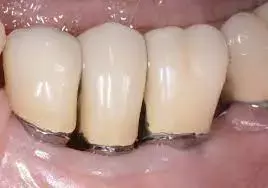- Home
- Medical news & Guidelines
- Anesthesiology
- Cardiology and CTVS
- Critical Care
- Dentistry
- Dermatology
- Diabetes and Endocrinology
- ENT
- Gastroenterology
- Medicine
- Nephrology
- Neurology
- Obstretics-Gynaecology
- Oncology
- Ophthalmology
- Orthopaedics
- Pediatrics-Neonatology
- Psychiatry
- Pulmonology
- Radiology
- Surgery
- Urology
- Laboratory Medicine
- Diet
- Nursing
- Paramedical
- Physiotherapy
- Health news
- Fact Check
- Bone Health Fact Check
- Brain Health Fact Check
- Cancer Related Fact Check
- Child Care Fact Check
- Dental and oral health fact check
- Diabetes and metabolic health fact check
- Diet and Nutrition Fact Check
- Eye and ENT Care Fact Check
- Fitness fact check
- Gut health fact check
- Heart health fact check
- Kidney health fact check
- Medical education fact check
- Men's health fact check
- Respiratory fact check
- Skin and hair care fact check
- Vaccine and Immunization fact check
- Women's health fact check
- AYUSH
- State News
- Andaman and Nicobar Islands
- Andhra Pradesh
- Arunachal Pradesh
- Assam
- Bihar
- Chandigarh
- Chattisgarh
- Dadra and Nagar Haveli
- Daman and Diu
- Delhi
- Goa
- Gujarat
- Haryana
- Himachal Pradesh
- Jammu & Kashmir
- Jharkhand
- Karnataka
- Kerala
- Ladakh
- Lakshadweep
- Madhya Pradesh
- Maharashtra
- Manipur
- Meghalaya
- Mizoram
- Nagaland
- Odisha
- Puducherry
- Punjab
- Rajasthan
- Sikkim
- Tamil Nadu
- Telangana
- Tripura
- Uttar Pradesh
- Uttrakhand
- West Bengal
- Medical Education
- Industry
Murine dental implants associated with dysregulated local immunity and risk of peri-implantitis

Murine dental implants are associated with dysregulated local immunity that increases susceptibility to pathogen-induced peri-implantitis, according to a recent study published in the Journal of Clinical Periodontology.
The aetiology and pathogenesis of peri-implantitis are currently under active research. This study aimed to dissect the pathogenesis of murine experimental peri-implantitis and assess Resolvin D2 as a new treatment modality.
Four weeks following titanium implant insertion, mice were infected with Porphyromonas gingivalis using single or multiple oral lavages. Resolvin D2 was administrated following infection and tissues were analyzed using flow cytometry, quantitative RT-PCR, taxonomic profiling, and micro-CT.
Results of the study:
- Repetitive infections with Porphyromonas gingivalis resulted in microbial dysbiosis and a higher influx of innate and adaptive leukocytes to the peri-implant mucosa than to the gingiva surrounding teeth.
- This was accompanied by increased expression levels of IFN-α, IL-1β, and RANKL-OPG ratio. Interestingly, whereas repetitive infections resulted in bone loss around implants and teeth, a single infection-induced bone loss only around implants, suggesting a higher susceptibility of the implants to infection.
- Treatment with Resolvin D2 prevented Porphyromonas gingivalis-driven bone loss and reduced leukocyte infiltration to the peri-implant mucosa.
Thus, murine dental implants are associated with dysregulated local immunity that increases susceptibility to pathogen-induced peri-implantitis. However, the disease can be prevented by Resolvin D2 treatment, highlighting the promising therapeutic potential of this treatment modality.
Reference:
Oded Heyman, et al. Excessive inflammatory response to infection in experimental peri-implantitis: resolution by Resolvin D2. First published: 27 June 2022. https://doi.org/10.1111/jcpe.13631
Keywords:
Oded Heyman, Yael Horev, Gabriel Mizraji, Yaron Haviv, Lior Shapira, Asaf Wilensky, Excessive, inflammatory, response, infection, experimental, peri-implantitis, resolution, Resolvin D2
Dr. Shravani Dali has completed her BDS from Pravara institute of medical sciences, loni. Following which she extensively worked in the healthcare sector for 2+ years. She has been actively involved in writing blogs in field of health and wellness. Currently she is pursuing her Masters of public health-health administration from Tata institute of social sciences. She can be contacted at editorial@medicaldialogues.in.
Dr Kamal Kant Kohli-MBBS, DTCD- a chest specialist with more than 30 years of practice and a flair for writing clinical articles, Dr Kamal Kant Kohli joined Medical Dialogues as a Chief Editor of Medical News. Besides writing articles, as an editor, he proofreads and verifies all the medical content published on Medical Dialogues including those coming from journals, studies,medical conferences,guidelines etc. Email: drkohli@medicaldialogues.in. Contact no. 011-43720751


